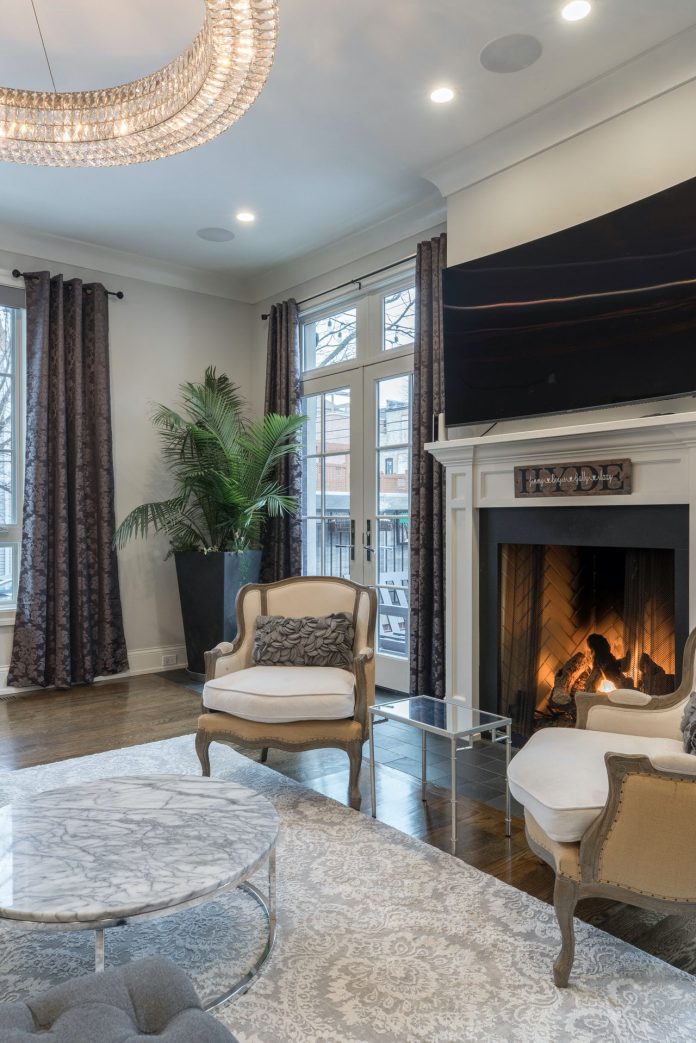How to Design your Perfect Family Home
Your home is the focal point of your and your family’s lives. A haven from where you set out into the world and return each day with stories to share and memories to make. It truly is your private realm that has seen you through all the ups and downs of life.
The way your space is designed is instrumental in how it feels and how you feel spending your days in it. We do understand that there is no single blueprint for a perfect family home. They can vary in size, shape, look, and feel. Some may appear minimalistic and organized, while others can be roaring with chaos and life.
The goal here is to create a home that feels warm and comforting and is adaptable to your family’s growing needs.
If you are looking to create the ideal family house, either from scratch or are renovating, stay with us as we talk about six tips on how to design a family home.
Proper Roofing
Since the roof is the structure that protects you and your family from external elements, it is best to pay attention to detail when it comes to chalking out a design for it.
When it comes to designing a secure roof, it is a good idea to engage a roofing contractor. While you may have a knack when it comes to roofing, sometimes doing it yourself may lead to more bad than good so go ahead and contact a professional team.
Two popular design options to consider are:
Gable Roofs
These are also called pitched roofs and are one of the most common designs you can find. Their distinct triangular shape makes them easily recognizable. The benefit of having a gable roof is that they are good with all kinds of weather because of their ability to shed snow and water.
Hip Roofs
Hip roofs are those that are sloping on all sides. All four of them have equal lengths and join together at the top.
A benefit of having a hip roof is that they are surely more stable than gable roofs. The inward slopes of the roof are what make them both durable and sturdy.
Design an Open Layout
When envisioning the layout of your home, two things should be on the top of your list: connectivity and visibility. To ensure having elements of both, you should turn your attention towards open floor plans or rather a combination of large multifunctional open spaces coupled with some private rooms.
If you are a family with younger children, it is most likely that you will need a space that allows you to keep an eye on them while carrying out some of your major tasks such as cooking a meal. This is where open spaces are most successful where the kitchen, dining and living rooms are merged as one.
Embrace Nature
If you are living in a warmer climate, you will find it natural to want to spend time outdoors. Therefore, it becomes crucial to have access to the outdoors through private decks, pools, and fully functioning backyards.
Having a garden or a backyard is perfect if you have children because not only does it stop them from running around indoors but allows them to tear away from screens and get hands-on with nature and its many bounties.
There are several fun ways to landscape your gardens to making them a wonderland for your little ones. You can create a safely fenced space that is filled with elements of adventure, such as hammocks, treehouses, and play areas.
Another aspect of welcoming nature into your homes is to ensure that ample sunlight pours in as well. Studies have found that exposure to natural daylight is hugely beneficial for the health and well being of individuals.
Have Designated Storage
If you are a family that is looking forward to having children or if you have little ones of your own, you are probably aware that kids mean stuff. Lots and lots of stuff. Therefore, a dedicated space for storing that stuff becomes essential in a family home. Storage would then include both a separate storage room and built-in storage.
It is a good idea to build a utility room that has expanded space for storage cupboards for each member of the family. This will be a fully functional room as you will be using it for the copious amounts of washing and drying that needs to take place daily. The cupboards will be home to winter coats, rucksacks, soccer kits, and many more items that need a designated storage spot.
Properly Positioned Bedrooms
Bedrooms are a topic of great discussion when it comes to creating the perfect family home since location and placement are key. Both aspects remain in flux depending on the timeline of the family.
When living with young children, it is important that their bedrooms are closer to the master bedroom so that there is an ease in feeding and supervision. However, as the kids grow older, hardly a few prefer to be close together, which is why there needs to be a reshuffling to create some needed distance.
Incorporate an Adult Space
Whether you have children or not, ever so often, you desire a space of your own that offers an element of escapism to your mundane routine life. This becomes even more crucial when you have children and barely get time for yourself. For this reason, we suggest creating a snug lounge or a quiet study for you and your partner.
To ensure that space soothes your nerves, incorporate serene elements such as dim lighting and a woodburning stove, to begin with.
You can play around with different wooden themes to ensure the space is optimal when it comes to being cozy and relaxing.

When it comes to putting together the perfect family house, there is a lot to consider, and the entire process is no walk in the park. However, while in it, you must remind yourself that families do not require perfection when it comes to a home, they need a peaceful space that sparks joy.
So do not worry about the nitty-gritty details so long as you have a grasp on what you wish to achieve as an outcome. Do you have renovation stories from when you designed your dream home? We would love to hear from you in the comment section below.


